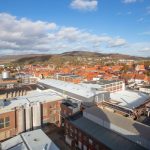With 23 industrial units- 22 in Brazil and 1 in Argentina, and a total production capacity of 4.5 million tonnes per year- including pulp, paper, and packaging, Klabin stands as Brazil’s largest producer and exporter of packaging paper, exporting to more than 80 countries with a strong market presence across Latin America, Europe, and Asia. In an exclusive interview with Paper Mart, Mr. José Soares, Paper Commercial Director, Klabin, shares insights into the company’s expansion plans, including the Ortigueira Unit. As per Mr. Soares, this is the largest investment in Klabin’s history—which will boost its paper production capacity to 900,000 tonnes annually. Alongside this, Klabin is investing in its Piracicaba II Unit and other recent projects, further strengthening its containerboard production chain and enhancing integration with corrugated box conversion, ensuring greater flexibility and stronger partnerships with major brand owners in Brazil.
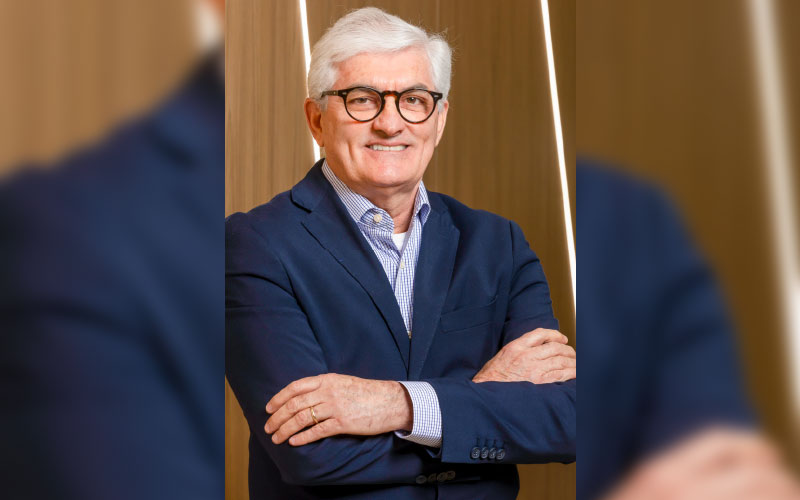
Paper Mart: Could you begin by giving us an overview of your packaging paper and board operations – including your production capacity, facility locations, and manufacturing setup?
José Soares: Klabin is Brazil’s largest producer and exporter of packaging paper, with a century-old history dating back to 1899. With 23 industrial units—22 in Brazil and one in Argentina—the company stands out for its integrated and sustainable approach across the entire production chain, from forest management to the delivery of pulp and paper solutions. It is the only Brazilian company to produce three types of pulp in a single industrial unit: hardwood, softwood, and fluff. Klabin is recognized for its commitment to the environment, with all of its production sourced from planted and certified forests. Additionally, 41% of the company’s forested area consists of preserved native forests.
Klabin currently has a production capacity of 4.5 million tonnes per year, which includes market pulp, paper, and packaging. The company is a leader in several segments, including paperboard, kraft paper, recycled paper, corrugated packaging, and industrial bags. Notably, it is the only company in Brazil capable of producing all three types of pulp—hardwood, softwood, and fluff—at a single plant. This robust and diversified structure provides Klabin with a strategic and strong position in both national and international markets.
With a strong presence in key sectors such as food, beverages, hygiene, construction, and agribusiness, Klabin stands out for its innovative capacity, operational efficiency, and diversified business model, establishing itself as a benchmark in sustainable packaging solutions.
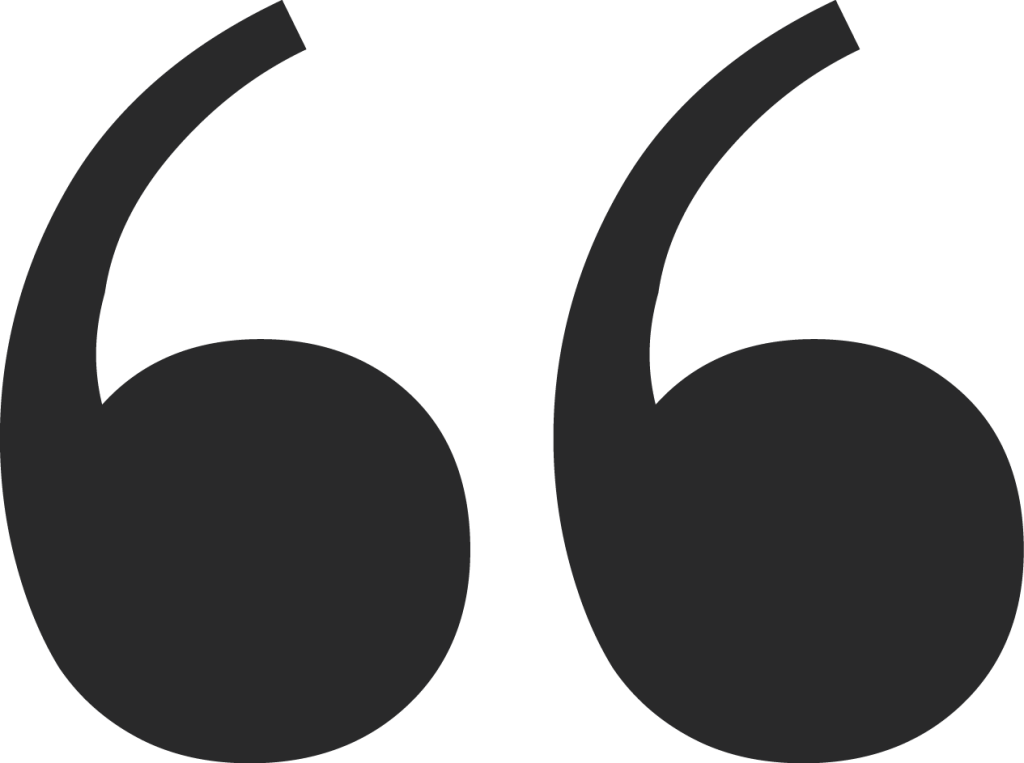
The implementation of artificial intelligence, process digitalization, predictive maintenance, and waste recycling plants has enabled loss reduction, increased productivity, and a lower environmental impact, reinforcing Klabin’s leadership in efficiency and sustainable innovation.
PM: Please walk us through your current product portfolio. What grades, GSM ranges, and end-use applications do you cater to, and are there any specialty packaging paper and board products you offer?
JS: Klabin’s portfolio is broad and diverse, offering solutions across various segments. In our paperboard line, we provide duplex, triplex, carrier board, liquid packaging board, and special versions with functional barriers. All of these products are made from virgin fibers sourced from a highly competitive forest base. Our paperboards are ideal for packaging food, beverages, personal care products, pharmaceuticals, and consumer goods, among others. Our kraftliners include virgin fiber paper options, such as Klaliner, White Top Liner, and Eukaliner® – the world’s first 100% eucalyptus fiber kraftliner, developed and patented by Klabin – as well as Eukaliner White Coated 8k®, designed for shipping packaging, promotional displays, and industrial applications, combining structural strength, reduced grammage, and excellent print quality. We also offer recycled paper (testliner and recycled core).
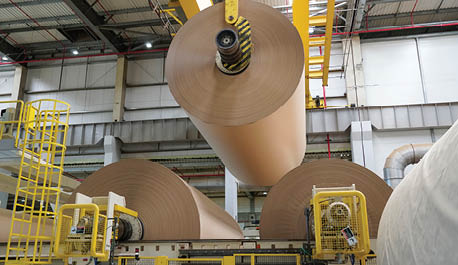
Klabin also offers papers with special technical properties, such as Klafold FZ® and Klafold GB®, which provide barriers against moisture and grease, respectively. We also offer solutions for thermoformed trays (Advance Tray®) and cups, such as Klacup®, Klacup® Bio, and Advance Cup®, our new white paperboard, a high-quality material ideal for use in the food service sector. The Advance® line stands out for its composition, which includes a mix of bleached hardwood and softwood, providing superior structure, strength, and high print quality. It is also suitable for use with hot and cold beverages and foods.
Grammage ranges from 90 to 440 g/m² for kraftliner and recycled containerboard papers, 205 to 360 g/m² for duplex, and 205 to 320 g/m² for triplex, allowing us to meet multiple market demands and ensuring flexibility and consistency in production.
Watch: In Pursuit of Lesser Water Footprint
PM: Which are your key domestic and international markets? How has your market footprint evolved in the past few years?
JS: Klabin is the leader in the domestic market for paperboard and containerboard production, serving essential sectors such as food, beverages, hygiene, construction, agribusiness, and e-commerce. Internationally, the company exports to over 80 countries, with a strong presence in Latin America, Europe, and Asia. In recent years, the expansion of the Ortigueira Unit, located in the state of Paraná, which includes the operation of paper machines 27 and 28, has increased the production capacity of high-performance papers, strengthening Klabin as a globally competitive supplier and enhancing the offering of higher value-added products, such as paperboard.

The construction and expansion projects at the Ortigueira Unit, the largest investment in the company’s history, increased paper production capacity in over 900,000 tonnes per year.
PM: Sustainability is becoming a cornerstone of packaging. What steps have you taken to integrate environmentally responsible practices into your manufacturing and sourcing?
JS: Sustainability is a strategic pillar for Klabin across the production chain. We are a global leader in responsible forest management, with a total area of over 911,000 hectares, 41% of which is dedicated to native forest conservation. We use a mosaic forest management model, combining planted areas with preserved areas, fostering biodiversity and ecological balance. With certified practices and continuous monitoring, we plant an average of 111 trees per minute, every day. Our production is fully integrated, focusing on energy efficiency, rational use of natural resources, the circular economy, and reducing greenhouse gas emissions.
Furthermore, we have a public agenda of sustainability commitments, the KODS (Klabin Sustainable Development Goals), which guide our goals and actions in alignment with the UN 2030 Agenda. We are also one of the first Brazilian companies to have decarbonization targets approved by the Science Based Targets Initiative (SBTi) for scopes 1, 2, and 3. We are committed to significantly reducing our greenhouse gas emissions by 2030 and achieving net-zero emissions by 2050, contributing to limiting global warming to 1.5°C, in line with the most ambitious guidelines from global climate science.
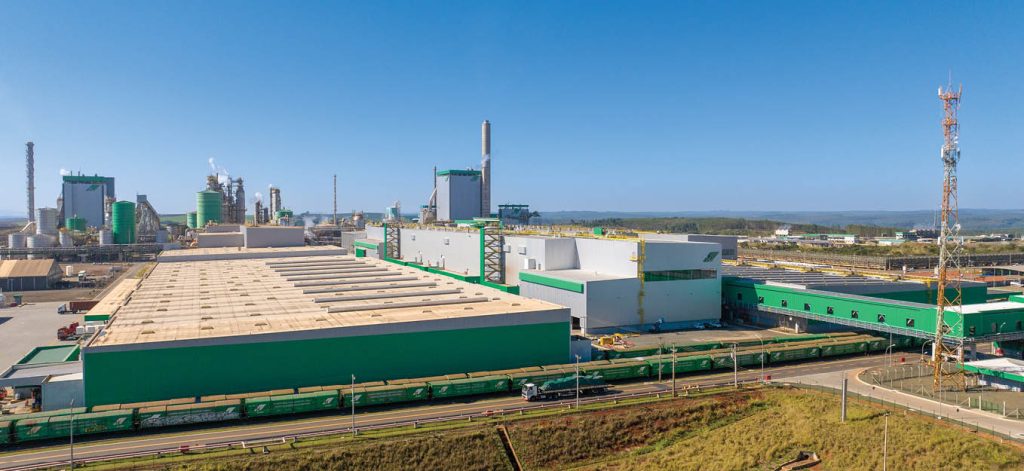
PM: How has demand for packaging paper and board evolved post-COVID and amid growing e-commerce and FMCG consumption? Which segments are currently driving the most growth for you?
JS: The post-pandemic period accelerated the demand for sustainable packaging, especially in the e-commerce, food, and personal care sectors. The demand for recyclable, biodegradable, and high-performance solutions drove growth in the kraftliner, barrier paper, and paperboard markets. Klabin met these demands by increasing production capacity, technological innovation, and diversifying its portfolio, ensuring it met market needs and offered high-value-added products to domestic and international customers.
PM: According to recent global market data, the packaging paper and board market is projected to grow steadily through 2033. How are you positioning your business to tap into this rising global demand?
JS: To achieve global growth, Klabin adopts a strategy that integrates industrial expansion, product innovation, and internationalization. The expansion of the Ortigueira Unit, focused on increasing capacity in high-performance packaging papers, is a testament to our ability to foresee market demands. The Piracicaba II Unit, along with other recent investments by the company, strengthens the containerboard paper production chain integrated with conversion into corrugated boxes, allowing for flexibility in both action and presence among the largest brand owners in Brazil.
The company has also been strengthening its presence in strategic markets in Asia and Europe, developing solutions aligned with trends in conscious consumption and sustainability. With a focus on technical distinction and environmental responsibility, we have consolidated our international competitiveness and delivered added value to our customers.
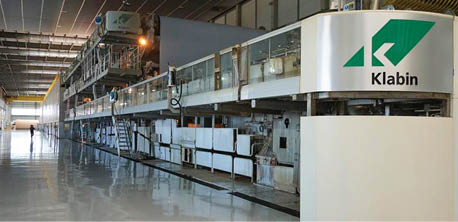
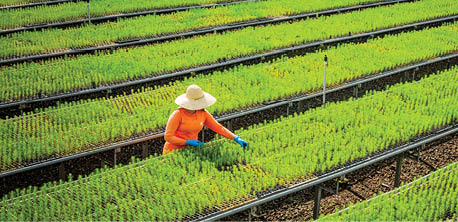
PM: What are some of the most significant technological upgrades or process improvements you’ve made recently in your mills to enhance quality, reduce waste, or optimize energy usage?
JS: Klabin has invested in cutting-edge technologies for automation, quality control, energy efficiency, and sustainability. The construction and expansion projects at the Ortigueira Unit, the largest investment in the company’s history, increased paper production capacity in over 900,000 tonnes per year. Paper machine 27, inaugurated in 2021, produces the innovative Eukaliner®, while paper machine 28, which began operations in 2023, is a hybrid machine that can produce Kraftliner and paperboard, including Eukaliner White Coated 8k®, suitable for different printing technologies. The implementation of artificial intelligence, process digitalization, predictive maintenance, and waste recycling plants has enabled loss reduction, increased productivity, and a lower environmental impact, reinforcing Klabin’s leadership in efficiency and sustainable innovation.
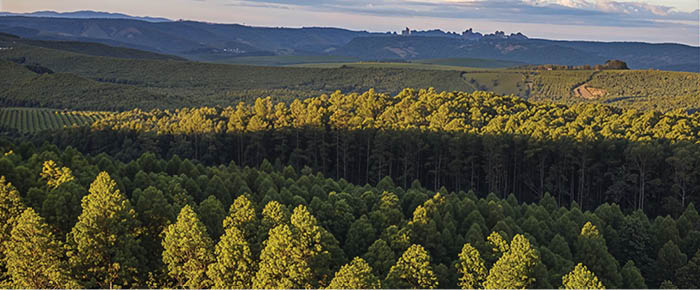
PM: Are you seeing a shift in customer preference toward higher-strength or lightweight packaging paper and board variants? How are you balancing performance with cost-efficiency in product development?
JS: Customers seek solutions that combine technical performance, sustainability, and competitive pricing. Klabin meets these demands through high-strength, lighter-grammage, recyclable, biodegradable, and food-safe papers, also offering customized products for different segments. The balance between performance, sustainability, and cost throughout the production and distribution chain is a strategic differential for the company and is key to its relationships with domestic and international customers.

We are also one of the first Brazilian companies to have decarbonization targets approved by the Science Based Targets Initiative (SBTi) for scopes 1, 2, and 3.
PM: What are the major challenges you currently face as a packaging paper and board manufacturer– be it raw material volatility, energy costs, logistics, or regulatory changes? How are you navigating them?
JS: The sector is facing challenges such as volatile input costs, logistical complexity, environmental regulations, and raw material shortages. Klabin acts proactively to mitigate these risks by investing in forestry and energy self-sufficiency, integrated multimodal logistics—including highways, railways, and coastal shipping—and maintaining a continuous dialogue with regulators and other stakeholders. This approach enables operational resilience, supply predictability, and global competitiveness, in addition to ensuring compliance with environmental and regulatory targets.
Also Read: Waste to Containerboard: Al-Jawdah Paper Driving Circular Economy in Saudi Arabia
PM: Looking ahead, what’s your strategic roadmap – capacity expansion, backward integration, export push, product diversification? How do you envision your mill’s role in the global packaging paper and board value chain in the next 5 years?
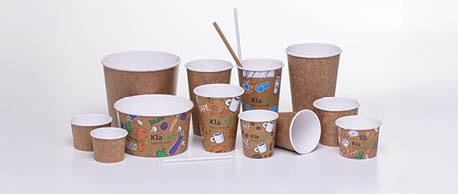
JS: Klabin is reaping the rewards of its recent investments, focusing on strengthening the operations of the Ortigueira Unit (PR) and the Piracicaba II Unit (SP). Both units are on a growth trajectory and are gradually increasing their production to enhance operational efficiency and optimize assets. We are focused on advancing the production of Eukaliner® and Advance® papers. For the future, we believe in the potential of softwood fluff pulp, a high-value-added product with growing demand. Within the global supply chain, Klabin will continue to strengthen its position as a strategic supplier of sustainable pulp and paper solutions.

It is the only Brazilian company to produce three types of pulp in a single industrial unit: hardwood, softwood, and fluff.



